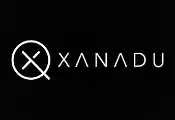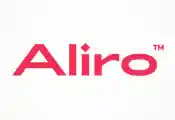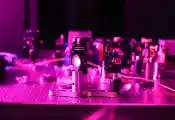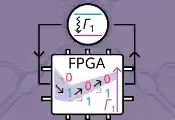SEALSQ and the Seoul Metropolitan Government Sign MoU to Establish a Post-Quantum Semiconductor Personalization, Research and Design Center in Seoul
Seoul, South Korea / Geneva, Switzerland, September 22, 2025 -- SEALSQ Corp ("SEALSQ" or "Company"), a company that focuses on developing and selling Semiconductors, PKI, and Post-Quantum technology hardware and software products, today announced the signing of a Memorandum of Understanding (MoU) with the Seoul Metropolitan Government and Invest Seoul, represented by Mayor Oh Se-hoon, which aims to establish a Post-Quantum Semiconductor Personalization, Research and Design Center in Seoul. The parties will now work together to identify suitable locations and local partners to join this exciting project.
A Quantum-Ready Facility for the Next Generation of Security
The proposed new center would serve as a state-of-the-art facility dedicated to researching, designing, testing, and embedding quantum-resistant cryptographic keys and identities into semiconductor chips, a crucial final step in the value chain that ensures devices are secured against future quantum-enabled cyberattacks.
The facility would serve to:
- 1. Research and design innovative RISC-V chip architectures integrated with post-quantum cryptography
Personalize and test post-quantum cryptographic chips at scale for IOT applications. - 2. Integrate quantum-resistant encryption modules into satellite systems, enhancing secure space communications.
Act as a regional hub for semiconductor and space innovation, strengthening South Korea’s leadership in both industries. - 3. The project plans to leverage RISC-V–based chip architectures with embedded post-quantum cryptography, fully compliant with Common Criteria and NIST’s Post-Quantum Cryptography (PQC) guidelines.
- 4. Strategic Alignment with South Korea’s Semiconductor & Space Leadership
South Korea is a global semiconductor powerhouse, controlling nearly 17% of the worldwide semiconductor market and leading in memory chip production. The government has committed $136 million for quantum R&D in 2025, positioning the country as an early adopter of quantum-secure communications and encryption technologies.
The establishment of this center aims to directly address the growing market demand for PQC:
- 1. The global PQC market is projected to grow from $1.1 billion in 2024 to between $4–9 billion by 2030–2033, representing a CAGR of 37–45%.
- 2. The Asia-Pacific region is among the fastest-growing markets, with South Korea leading as a testbed for quantum key distribution (QKD), PQC pilots, and secure communications infrastructure.
By combining semiconductor expertise with quantum-ready cryptography, the new center would strengthen South Korea’s strategic role in global cybersecurity and digital sovereignty.
A unique feature of the Seoul initiative is the proposed integration of quantum-resistant technology into satellite systems, reflecting a forward-thinking approach to securing global communications infrastructure. As quantum computing advances, space-based assets such as satellites, navigation systems, and communications networks face heightened vulnerability. By embedding PQC directly at the semiconductor level, SEALSQ is demonstrating a comprehensive approach to post-quantum security, converging terrestrial and space-based infrastructure to ensure resilience in both domains.
A Global Expansion Through Public-Private Partnerships
This project is part of SEALSQ’s broader global expansion strategy through Public-Private Partnerships (PPPs), with similar initiatives currently underway and in development across Europe, the Middle East, and Asia.
The company’s focus on RISC-V chip architectures integrated with post-quantum cryptography ensures alignment with international standards and regulatory frameworks, particularly those emerging from NIST PQC guidelines. This positions SEALSQ at the forefront of compliance, resilience, and trust in the post-quantum era.
“South Korea has long been a semiconductor powerhouse,” said SEALSQ’s Director David Fergusson, who together with SEALSQ’s COO Loic Hamon, signed the MOU with Mayor Oh He-soon at the 2025 Seoul Investors Forum. “Today, the country’s economy runs on semiconductors,which are embedded in every industry, from automotive to telecom to healthcare. Yet, without secure next-generation chips, it will be impossible to sustain the growth of this integrated digital society. By hosting SEALSQ’s Post-Quantum Semiconductor Center in Seoul, the nation is not only strengthening its dominance in chips but also positioning itself as a first mover in post-quantum security, a field that will define global competitiveness in the coming decade. This initiative ensures Korea’s future remains both innovative and secure.”
"Today, Seoul joins hands with SEALSQ, the world’s leading quantum security technology company, to shape the future together,” said Mayor Oh Se-hoon, Seoul Metropolitan Government. “The South Korean government has recently announced plans to pilot applications of quantum security technology in core national infrastructure, including administration, communications, defense, and healthcare. Partnering with SEALSQ on this Post-Quantum Semiconductor Personalization, Research and Design Center reinforces our ambition to lead not only in semiconductors but also in cybersecurity and space innovation. This initiative will help secure our digital future and create high-value opportunities for our economy."
"The signing of this MoU with the City of Seoul marks an important milestone in our mission to build a quantum-safe world,” said Carlos Moreira, Founder and CEO of SEALSQ. “By embedding post-quantum cryptography at the semiconductor level, we are addressing one of the most urgent global challenges: ensuring that critical infrastructure remains secure in the age of quantum computing. Few countries are as uniquely positioned as South Korea to lead this transformation. Throught the SEALSQ program, we are establishing a tryly collaborative partnership, bringing the world’s most innovative post-quantum chip technology to the country in collaboration with the Seoul Metropolitan Government and leading Korean semiconductor companies. Together we aim to unlock the full potential of post-quantul inovation.”




































